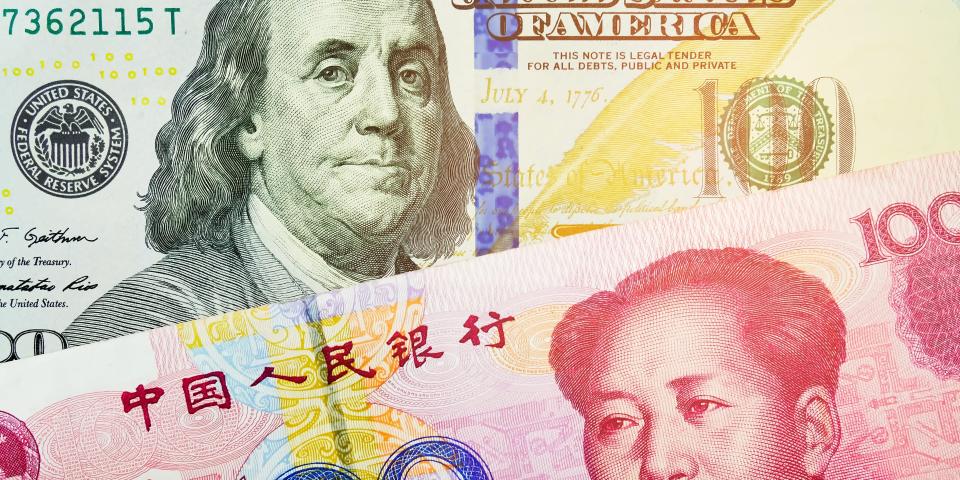Partial de-dollarization is possible, but China won't dethrone the greenback even if it becomes the world's largest economy

JPMorgan strategists said dollar dominance isn't going away anytime soon, regardless of China's growth.
Partial de-dollarization in possible as China's yuan becomes a bigger part of global commerce.
De-dollarization can stem from sliding faith in the dollar, or developments that enhance the credibility of other currencies.
The world could soon see the dominance of the US dollar start to wane, amounting to a partial de-dollarization of the global economy, according to JPMorgan, but that doesn't mean it's at risk of being replaced by a competitor like the yuan.
In a recent note, strategists at the bank explained that even if China's economy surpasses that of the US, it is still unlikely that the hegemony of the greenback would take much of a hit, and history suggests that any shift would happen at a glacial pace.
"While the US surpassed Great Britain as the world's largest economy in the latter part of the 19th century, the US dollar is commonly perceived to have overtaken the British pound as the world's foremost reserve currency only by the end of WWII," JPMorgan strategists wrote. "Historical experience thus suggests that if China were to overtake the US as the world's largest economy around 2030, dollar dominance may persist even into the second half of the 21st century."
What's more, the yuan could only gain if China relaxes capital controls, which for now doesn't seem likely.
The strategists noted that marginal de-dollarization remains possible, and it could be accelerated either by a weakening faith in the greenback or positive developments outside the US that bolster credibility of another currency.
International Monetary Fund data cited by JPMorgan shows that the dollar's share of foreign currency reserves has declined from 73% in 2001 to 58% in 2022. In that span, the yuan's share grew by about 2.5%.
The figures don't conclusively illustrate de-dollarization, in JPMorgan's view, since fluctuations in exchange rates and portfolio reallocations also have an impact.
The bank maintained that China stands as the only competitor eager to supplant the role of the dollar and the US economy in the long-term. But given the US's standing with its economy, technology, demographics, geography, and other factors, it remains unlikely.
Economist Stephen Jen, the CEO of Eurizon SLJ, has forecasted that a "tripolar" currency system could eventually emerge, with the dollar ruling alongside two others.
"If I have to guess," he told Insider previously, "it should be the [euro] and the [yuan] having roughly equal presence. Such a 'tripolar' reserve currency configuration would also make sense and be more aligned with the economic heft of the three blocs."
Read the original article on Business Insider

 Yahoo Finance
Yahoo Finance 